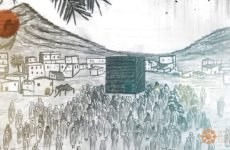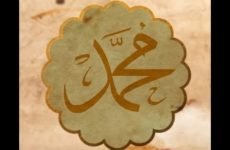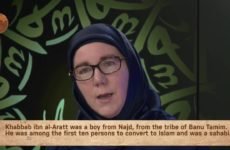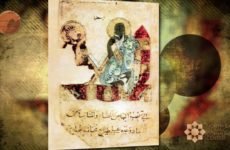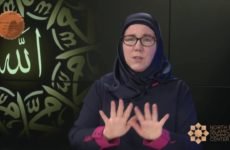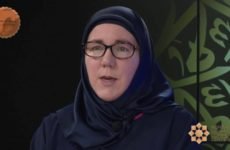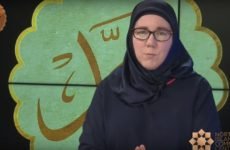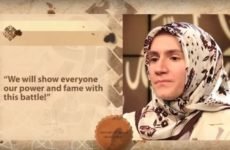CONQUEST (OR SURRENDER) OF MAKKA
Right after Abu Sufyan left Madina, the Prophet turned to his wife Aisha and said:
“Make preparations for the road but keep it secret.”
He was going to go to Makka, but he did not want any bloodshed; he planned to surprise them and catch them off guard. Now Muhajirun, the Emigrants were going to return to their homes, their relatives, their homeland, and most importantly the Ka’ba.
The Prophet was sending envoys in all directions and spreading the news:
“All those who believe in Allah and His Messenger should be ready in Madina by the month of Ramadan.”
Everyone who had become a Muslim to that day had responded to the invitation of the Prophet and had run to Madina. It was the first days of Ramadan. Around the Prophet was an army of ten thousand people, made up of the Ansar, the Muhajirun and other tribes. As they made their way on the road, people kept joining them.
The companions did not know of the destination of the campaign until they were ordered to change their direction toward Makka. When they approached this holy city, the Prophet ordered that each member of the army should light a fire. The Makkans had been left nothing to do other than surrender. Abu Sufyan, who had been invited by the Prophet Muhammad to see the Muslim army, also advised the Makkans to surrender without offering any resistance.
It was Abu Sufyan who brought the first news to the Makkans and spoke about the assurance that Prophet had given:
“Whoever takes refuge in the house of Abu Sufyan will be protected. Whoever closes his door and seeks refuge in his own home, he too will be protected! The people who take refuge in the Ka’ba are also secure, and they will not be harmed.”
The Prophet did not desire any bloodshed. He divided his army into six sections, each of which was to enter Makka through a different route. He ordered the commanders to avoid bloodshed unless they were attacked. In order to prevent bloodshed and secure a peaceful conquest, he repeated his assurance: Those who shelter in the Ka’ba are safe; those who shelter in the house of Abu Sufyan are safe, and those who remain confined to their houses are also safe.
The Prophet proceeded toward the Ka’ba in utmost modesty and absolute gratitude to God. He stopped at the Ka’ba and asked those who assembled there: How do you expect me to treat you?
“You are a noble man, the son of a noble man,”
they answered. The Prophet Muhammad concluded:
This day no reproach shall be on you. God will forgive you; He is the Most Merciful of the Merciful. You can go away.
This marked the end of polytheism in Makka. While he was destroying the idols in the Ka’ba one after the other, he recited:
“The truth has come, and falsehood has vanished. Surely falsehood is ever bound to vanish by its very nature” (al-Isra 17:81)
Further Reading:
Haylamaz, Resit and Harpci, Fatih. Prophet Muhammad: Sultan of Hearts, II vol. New Jersey: Tughra Books, 2014.
Ünal, Ali trans. The Qur’an with Annotated Interpretation in Modern English. New Jersey: Tughra Books, November 2008.
Gülen, Muhammad Fethullah. The Messenger of God: Muhammad, An Analysis of the Prophet’s Life. New Jersey: The Light, 2006.










